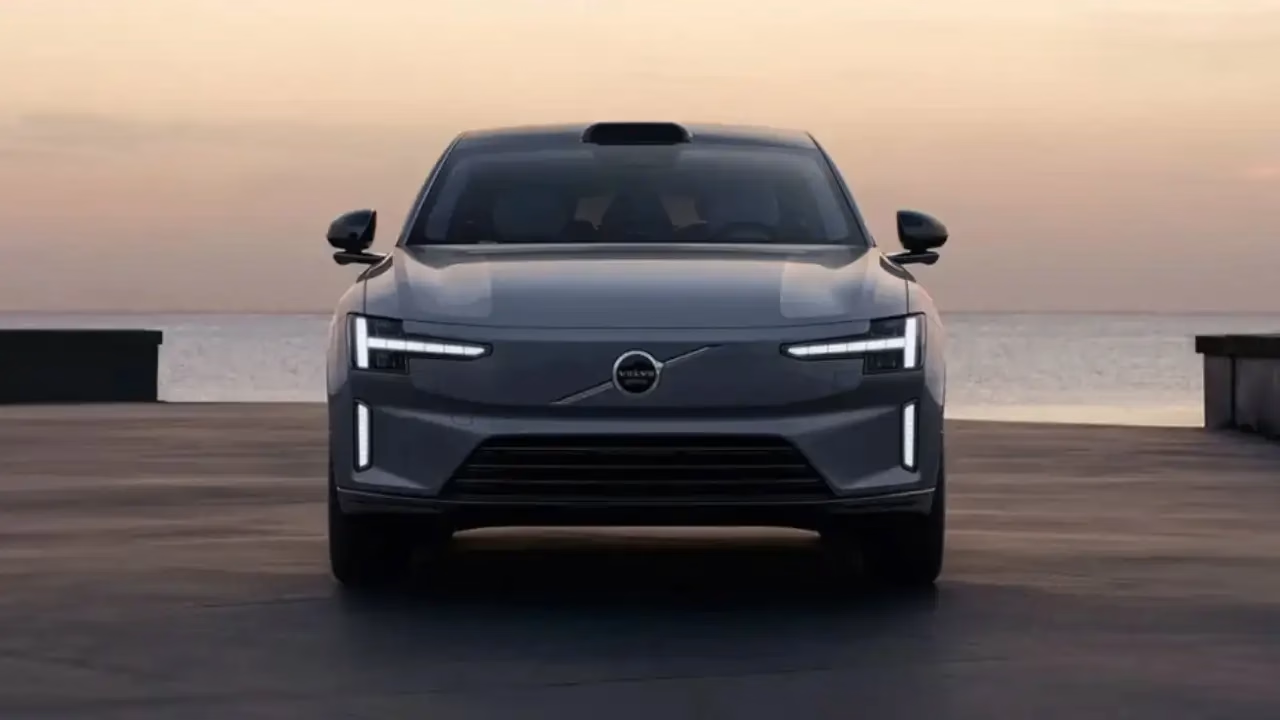Volvo's Bold Step Towards a Software-Defined Future with Tata Technologies
The automotive industry, as we know it, is undergoing a profound transformation. It's no longer just about horsepower and torque; it's increasingly about lines of code and digital experiences. This shift, towards what we call the software-defined vehicle (SDV), is perhaps the most significant evolution since the advent of the internal combustion engine. And Volvo Cars, a brand synonymous with safety and Scandinavian design, is clearly embracing this future head-on. They've just announced a significant expansion of their partnership with Tata Technologies, positioning the Indian engineering giant as a strategic supplier for their software-defined ambitions.
The Software-Defined Vehicle Revolution: More Than Just a Screen
So, what exactly is a software-defined vehicle? Think of it less like a traditional car and more like a smartphone on wheels. It's a vehicle where a substantial portion of its functionality, from infotainment and driver-assistance systems to powertrain management and even chassis control, is governed by software. This isn't just about having a big touchscreen, mind you. It's about enabling over-the-air (OTA) updates that can introduce new features, enhance performance, improve safety, and even fix issues without a trip to the dealership. Imagine getting a new driving mode or an updated safety feature downloaded to your car overnight. That's the power of SDVs.
This paradigm shift is crucial for automakers looking to stay competitive. It allows for faster innovation cycles, greater personalization for drivers, and the potential for new revenue streams through subscription services. We've seen major players like Daimler Truck also investing heavily, even forming joint ventures like Coretura AB, to develop unified software platforms. It's a clear signal: software is now a core competency for any serious automotive player. And frankly, if you're not moving in this direction, you're probably already behind.
Volvo Taps Tata Technologies: A Strategic Alliance Deepens
Volvo's decision to deepen its ties with Tata Technologies isn't entirely new; they've had an established relationship. But this latest announcement, made on June 19, 2025, marks a "significant expansion," elevating Tata Technologies to a strategic supplier. This isn't just about outsourcing a few tasks. It's about integrating Tata Technologies into the very fabric of Volvo's future product development.
The scope of this collaboration is quite broad, encompassing product engineering, embedded software development, and product lifecycle management. This means Tata Technologies will be involved from the initial design phases right through to the ongoing maintenance and evolution of Volvo's vehicle software. What's particularly interesting is the leveraging of Tata Technologies' global hubs. We're talking about expertise being drawn from Sweden, India, Romania, and Poland. This distributed development model, I believe, is key to accessing diverse talent pools and accelerating development timelines. It's a smart play, really, given the global demand for skilled software engineers.
Implications for Volvo's Future and the Broader Market
This partnership has profound implications for Volvo Cars. For one, it significantly bolsters their in-house capabilities without the massive overhead of building everything from scratch. By partnering with a specialist like Tata Technologies, Volvo can accelerate its transition to becoming a true leader in the SDV space. This means we can expect future Volvo models to be even more connected, intelligent, and adaptable. Think enhanced advanced driver-assistance systems (ADAS), more intuitive user interfaces, and perhaps even entirely new digital services.
It also reinforces Volvo's commitment to its core values. Software-defined vehicles offer unprecedented opportunities to enhance safety through predictive analytics and real-time updates. They can also contribute to sustainability by optimizing vehicle performance and enabling more efficient energy management. Ultimately, this move is about delivering a superior, more personalized, and safer experience for the driver. And that's a win-win, isn't it?
The Power of Global Collaboration and Talent Pools
The decision to utilize Tata Technologies' global hubs is a testament to the increasingly interconnected nature of automotive development. India, for instance, has emerged as a powerhouse for software engineering talent, and leveraging that expertise makes perfect sense. Similarly, the hubs in Romania and Poland provide access to skilled engineers within Europe, complementing Volvo's strong presence in Sweden.
This multi-region approach isn't just about cost efficiency; it's about resilience and access to specialized skills that might be scarce in any single location. It allows for round-the-clock development cycles and fosters a diverse perspective in problem-solving. For a company like Volvo, which operates on a global scale, having partners with a similar international footprint is invaluable. It's about finding the best talent, wherever they may be.
The Road Ahead: Challenges and Opportunities
While the benefits are clear, the journey to a fully software-defined future isn't without its challenges. Integrating complex software systems from multiple vendors, ensuring robust cybersecurity, and managing the sheer volume of data generated by these vehicles will require continuous effort. There's also the ongoing question of how consumers will adapt to a car that constantly evolves through software updates. Will they embrace it, or will some prefer the simplicity of a more traditional vehicle?
Nevertheless, the opportunities far outweigh the hurdles. This partnership positions Volvo to innovate faster, respond more dynamically to market demands, and ultimately, redefine what a premium driving experience means in the digital age. It's an exciting time to be in the automotive world, and Volvo's strategic move with Tata Technologies is certainly one to watch. They're not just building cars anymore; they're building intelligent, connected platforms.
